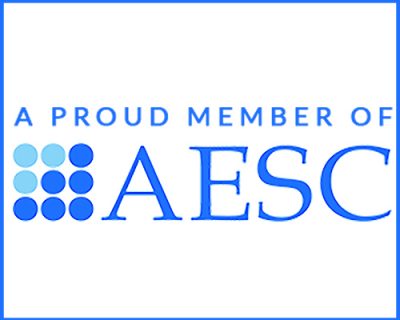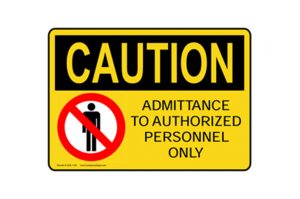
 ”Have you got any advice on my CV?” or “What do you think of my resume?” and “How can I improve my CV? are the questions we are asked every day here at Underwood Executive.
”Have you got any advice on my CV?” or “What do you think of my resume?” and “How can I improve my CV? are the questions we are asked every day here at Underwood Executive.
The executive resume is a sales tool – it is a preview document with the goal of winning an interview. The resume is not a document to tell the interviewer everything about you (no DOB, how many kids you have or what you enjoy doing on the weekend). It’s an appetizer, a taste of what skills and competencies you have to offer as a high performer.
The best resumes are visually appealing, easy to read and have very little narrative and more dot point facts and figures.
Specifically, here are 8 tips to producing an effective executive resume:
- Short & sweet– preferably 3 pages (maximum 5) is enough to demonstrate skills, experience, competencies and achievements. Anything longer tends to suggest long narratives, too much waffle or a retyping of a job description. Use a crisp font style and size (please not Times New Roman!), use dot points and short clear sentences. Never use third person or ‘me-centred’ statements with lots of opinion. We want to see white space – not long paragraphs or over indulgent sentences. Always consider readability and not squeezing too much on one page.
- Personal details – your name, mobile number, email and LinkedIn URL (make sure you customise this) are best in a header so these details carry across to every page. It is also recommended you use page numbers, so when someone prints your CV it is easy to put in order.
- Give yourself a title – the first thing we should be able to see on your resume is what type of executive you are eg: General Manager HR or Chief Financial Officer. Giving yourself a title or several titles makes it easy for the reader to make a connection to the types of positions you are going to be interested in. You can separate titles, just like you can on a LinkedIn profile eg: Group Executive HR | Organisational Development | Change Agent.
- Competencies & key words – what are your stand out strengths? Those skills that someone should be hiring you for? What competencies have allowed you to succeed in previous positions? We need to see these skills listed on the front page. Think of these as key words that should be repeated throughout your resume to sell your story and they become the key message to reinforce your strengths.
- Career summary– having a table on the front page of your resume that summarises your career history with the company, position title and dates/length of service is a quick reference point for the reader to see your career in an easy snapshot.
- Company descriptions– not everyone has worked with well-known brand names like Woolworths or Commonwealth Bank, so we always recommend 2 – 3 sentences saying who the company is, the revenue turnover of the organisation, the industry, number of staff etc. Any information that makes it easy for the reader to make a connection and understand the type, size and complexity of the organisations that you have worked for. Further additions can be hyperlinks to the organisation and the use of logos.
- Dates– a resume without specific dates (months and years) is frustrating, as we can’t determine length of service in each role. Being clear about employment dates and gaps is critical in producing an honest and up to date document. This also includes having dates for when you have completed relevant qualifications. Always check to make sure these dates and descriptions match your LinkedIn profile too.
- Career history – always start with your current or most recent position making it very clear your job title and key responsibilities. To give each role size and scale, you can say who you report to eg: CEO and include how many staff report to you eg: 5 Managers, 46 team members, budget responsibility and the role purpose. Including key achievements under each position demonstrates you have performed well, what you have contributed and what success you have achieved. Where possible use as many facts and figures, such as sales results, cost savings, engagement survey results, change management projects etc. Don’t go back any further than 10 years in great detail, as prior experience can be summarised and shows how your career has progressed, but we don’t need the actual key responsibilities for all of these past positions.
Remember that an executive resume is about making yourself and your career stand out through highlighting your most important skills and milestones. You won’t be able to get all of this information in a succinct document, so don’t even try. In this situation, less is more. Too often resumes become versions of war and peace and you lose the reader by confusing them with too much irrelevant data and information that takes away from your core skills, experience and achievements.
If you want your CV noticed, ask yourself what is the most remarkable and significant information as an executive that I want to get across? What skills have I developed to achieve success so far in my career? What makes me more appealing to hire than another executive? What can I bring to the table that potentially others can’t? What do I want to be known for? It is the answer to these questions that you need to prioritise.
A great executive resume is appealing, concise, informative and relevant with key words and factual information.
Need help? Speak to our consulting team about a career coaching session here.






 How many times have you hired a dud? How many times have you kicked yourself for not following your gut and made a poor recruitment decision? Was it that they were 5 minutes late for their interview, did they have a sweaty handshake, were they reluctant to provide relevant referees or was it that unexplained gap in their CV when they were taking a ‘career break’?
How many times have you hired a dud? How many times have you kicked yourself for not following your gut and made a poor recruitment decision? Was it that they were 5 minutes late for their interview, did they have a sweaty handshake, were they reluctant to provide relevant referees or was it that unexplained gap in their CV when they were taking a ‘career break’?